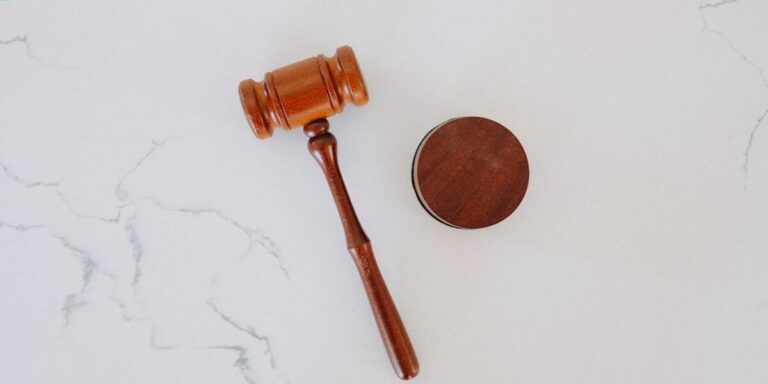Distributing Foreign Assets To Heirs
Have you ever wondered about the complexities of distributing foreign assets to heirs? As the world becomes increasingly interconnected, individuals often have assets in different countries that need to be accounted for in their estate plans. In this article, we will explore the intricate process of distributing these assets to ensure that your loved ones receive their rightful inheritance. From understanding the applicable laws to navigating tax implications, we will cover all the essential aspects to consider when it comes to transferring your foreign assets to your heirs. So, if you find yourself in need of legal assistance in this matter, don’t hesitate to reach out to a knowledgeable business lawyer who can guide you through the intricacies and help you protect your assets for future generations.

Understanding Foreign Assets
Foreign assets refer to any type of property or investment that is located outside of your home country. These assets can include real estate, bank accounts, stocks, bonds, and other financial holdings. Understanding the nature of foreign assets is crucial when it comes to distributing them to your heirs.
Definition of Foreign Assets
Foreign assets are assets that are located in a country other than your country of residence or citizenship. These assets can be held in your personal name or through a legal entity such as a trust or corporation. It is essential to identify and understand these assets in order to ensure they are properly accounted for and distributed according to your wishes.
Common Types of Foreign Assets
There are various types of foreign assets that individuals may own. These include:
-
Real Estate: This can include residential or commercial properties in a foreign country. It is important to consider any local laws and regulations pertaining to property ownership and transfer.
-
Bank Accounts: Foreign bank accounts can hold funds or investments in another currency or jurisdiction. These accounts may be subject to different taxation and reporting requirements.
-
Investments: Stocks, bonds, mutual funds, and other investment assets held in foreign markets are also considered foreign assets. Understanding the tax implications and potential transfer restrictions is crucial.
-
Business Interests: If you own a business or have shares in a foreign company, these holdings are considered foreign assets. The transfer of ownership or control of these interests should be properly addressed in your estate plan.
-
Intellectual Property: Patents, trademarks, copyrights, and other forms of intellectual property may have international implications. Ensuring these assets are protected and transferred correctly is crucial.
Considerations when Distributing Foreign Assets
When distributing foreign assets to your heirs, there are several important considerations to keep in mind:
-
Local Laws and Regulations: Foreign countries may have their own laws and regulations regarding the transfer and taxation of assets. It is important to understand and comply with these rules to ensure a smooth distribution process.
-
Tax Implications: Transferring foreign assets may have tax consequences, both in your home country and the foreign jurisdiction. Consulting with a tax professional can help minimize tax liabilities and ensure compliance.
-
Currency Exchange and Conversion: If your foreign assets are denominated in a currency different from your home currency, the exchange rate and conversion process may impact the value of these assets. It is important to consider the impact of currency fluctuations when distributing foreign assets.
-
Timing and Coordination: Distributing foreign assets may require coordination with local authorities, financial institutions, and legal professionals in the foreign jurisdiction. Planning ahead and allowing sufficient time for these processes is crucial.
Determining Heirs
Establishing heirs is a critical part of estate planning, especially when it comes to distributing foreign assets. Identifying your heirs ensures that your assets are passed on to the right individuals and in accordance with your wishes.
Importance of Establishing Heirs
Establishing heirs by clearly outlining who will inherit your foreign assets is essential in avoiding potential disputes and legal complications. By specifying your beneficiaries, you are ensuring that your assets are distributed according to your wishes and in a manner that aligns with the applicable laws.
Methods to Determine Heirs
There are several methods to determine heirs when it comes to distributing foreign assets:
-
Will: Creating a comprehensive will that specifies who will inherit your assets is one of the most common methods. This allows you to clearly outline your wishes and name your heirs.
-
Trust: Establishing a trust can provide additional flexibility and control over the distribution of your foreign assets. With a trust, you can designate beneficiaries and appoint a trustee to manage the assets on behalf of the beneficiaries.
-
Intestate Succession Laws: If you do not have a valid will or trust in place, the distribution of your assets will be governed by the intestate succession laws in the jurisdiction where the assets are located. These laws typically prioritize immediate family members as beneficiaries.
It is crucial to consult with an estate planning attorney to determine the most appropriate method for determining heirs based on your individual circumstances and goals.
Estate Planning
Estate planning involves creating a comprehensive plan for the management and distribution of assets, including foreign assets, after your passing. It is a crucial step in ensuring that your wishes are carried out and minimizing the potential for disputes among your heirs.
The Importance of Estate Planning
Estate planning is essential for several reasons:
-
Peace of Mind: Having a well-thought-out estate plan gives you peace of mind knowing that your assets will be distributed according to your wishes after your passing.
-
Minimizing Conflicts: A comprehensive estate plan can help minimize conflicts and disputes among family members by clearly outlining your intentions.
-
Tax Planning: Proper estate planning allows you to minimize tax liabilities and maximize the value of your estate for your beneficiaries.
-
Protecting Your Loved Ones: Estate planning can also include provisions for the care and well-being of your loved ones, such as appointing guardians for minor children or setting up a trust to provide for family members with special needs.
Hiring an Estate Planning Attorney
Given the complexities involved in estate planning, it is highly recommended to hire an experienced estate planning attorney. A knowledgeable attorney can guide you through the process, ensure that your estate plan is legally valid, and help you address any specific considerations related to your foreign assets.
Creating a Comprehensive Will
A will is a legal document that outlines how your assets, including your foreign assets, should be distributed after your passing. It allows you to specify who will inherit your assets and appoint an executor to carry out your wishes. When creating a comprehensive will, consider the following:
-
Detailed Asset Description: Provide a detailed description of your foreign assets, including location, type, and any specific instructions for their distribution.
-
Nominate an Executor: Choose a trusted individual to act as the executor of your estate. This person will be responsible for managing the distribution of your assets, including your foreign assets.
-
Alternative Beneficiaries: Specify alternative beneficiaries in case a primary beneficiary predeceases you or is unable to inherit the assets.
-
Specific Instructions: Include any additional instructions or wishes you may have regarding the distribution of your foreign assets.
Consulting with an estate planning attorney can ensure that your will is properly drafted and legally valid in both your home country and the jurisdiction where your foreign assets are located.
Appointing an Executor
An executor is an individual or institution appointed to administer your estate after your passing. When it comes to distributing foreign assets, selecting the right executor is crucial to ensure that the process is carried out smoothly and in accordance with your wishes.
Understanding the Role of an Executor
The role of an executor involves several important responsibilities, including:
-
Gathering and Securing Assets: The executor is responsible for identifying, collecting, and safeguarding all of your assets, including your foreign assets.
-
Managing Debts and Expenses: The executor must handle any outstanding debts, taxes, or expenses related to your estate, including those associated with your foreign assets.
-
Distributing Assets: After all debts and expenses have been addressed, the executor distributes the remaining assets to the designated beneficiaries, including the heirs of your foreign assets.
Selecting an Executor
Choosing the right executor is crucial in ensuring the effective administration and distribution of your estate, especially when it comes to foreign assets. Consider the following factors when selecting an executor:
-
Trustworthiness: Select someone you trust to act in your best interests and carry out your wishes.
-
Organizational Skills: The executor should be organized and detail-oriented, as they will be responsible for managing various aspects of the distribution process.
-
Financial and Legal Knowledge: It is beneficial to choose an executor who has a good understanding of financial and legal matters, especially those related to international estate matters.
-
Conflict Resolution Skills: The executor may need to mediate potential conflicts or disputes among beneficiaries, so it is important to select someone with strong communication and conflict resolution skills.
Executor’s Responsibilities in Distributing Foreign Assets
The executor plays a crucial role in the distribution of foreign assets, including:
-
Identifying and Valuing Foreign Assets: The executor must locate and determine the value of your foreign assets, taking into consideration factors such as currency exchange rates and local laws.
-
Compliance with Laws and Regulations: The executor is responsible for ensuring that the transfer and distribution of foreign assets comply with applicable local laws and regulations.
-
Coordination with Professionals: The executor may need to work with legal and financial professionals in the foreign jurisdiction to facilitate the transfer of the assets.
-
Communicating with Beneficiaries: Throughout the distribution process, the executor should provide clear communication and updates to the beneficiaries, especially those entitled to inherit the foreign assets.
Consulting with an estate planning attorney can help you select the most appropriate executor and ensure that they understand their responsibilities in distributing your foreign assets.
Understanding International Laws and Treaty Provisions
Distributing foreign assets involves navigating international laws and treaty provisions that may impact the transfer and taxation of these assets. Understanding the implications of these legal considerations is essential to ensure a smooth and compliant distribution process.
Implications of International Laws
Various international laws come into play when it comes to distributing foreign assets. These may include laws related to:
-
Inheritance and Succession: Each country has its own laws regarding inheritance and succession, which can impact the rights and entitlements of heirs to foreign assets.
-
Property Ownership and Transfer: Foreign jurisdictions may have specific laws regarding property ownership and the transfer of real estate or other assets.
-
Taxation: The taxation of foreign assets can be complex, as it involves both the jurisdiction where the assets are located and the home country of the deceased. Double taxation treaties and local tax laws should be considered when distributing foreign assets.
Understanding the specific laws of the foreign jurisdiction and how they interact with your home country’s laws is crucial in ensuring compliance and avoiding potential legal challenges.
Reviewing Treaty Provisions
Many countries have entered into bilateral or multilateral treaties that govern the taxation and transfer of assets between jurisdictions. These treaties often provide provisions to avoid double taxation and establish clear rules for the transfer of assets. Reviewing the relevant treaty provisions can help determine the tax implications and legal requirements when distributing foreign assets.
Considering Applicable Tax Laws
Taxation is a significant consideration when distributing foreign assets. Different countries have different tax laws that may impose inheritance, estate, or capital gains taxes on the transfer of assets. It is important to consult with a tax professional who specializes in international taxation to minimize tax liabilities and ensure compliance with the applicable tax laws of both the home country and the foreign jurisdiction.
Obtaining Legal Assistance
Navigating the complexities of distributing foreign assets to heirs requires expert legal assistance. Seeking the guidance of an attorney with expertise in international estate matters can provide numerous benefits and ensure a smooth and legally compliant distribution process.
The Benefits of Seeking Legal Advice
Engaging an attorney experienced in international estate matters can provide several advantages:
-
Expertise in International Laws: An attorney who specializes in international estate planning and distribution will have a deep understanding of the relevant laws and regulations both in your home country and the foreign jurisdiction.
-
Customized Solutions: An attorney can provide tailored solutions based on your specific circumstances and goals, helping you navigate complex legal issues and minimize potential challenges.
-
Coordination and Communication: Working with an attorney ensures effective coordination and communication with professionals in the foreign jurisdiction, such as local counsel or tax advisors, to facilitate the distribution of your foreign assets.
-
Peace of Mind: Knowing that you have sought expert legal advice can provide peace of mind, knowing that your foreign assets will be distributed in accordance with your wishes and in compliance with all applicable laws.
Finding an Attorney with Expertise in International Estate Matters
When seeking legal assistance for distributing foreign assets, it is crucial to find an attorney who specializes in international estate matters. Consider the following when selecting an attorney:
-
Experience and Expertise: Look for an attorney who has substantial experience in international estate planning and distribution, with a proven track record in this specific area of law.
-
Credentials and Professional Associations: Consider an attorney who is a member of relevant professional associations or holds specialized certifications in international estate planning.
-
Reputation and Client Reviews: Research the attorney’s reputation and seek client reviews or testimonials to gauge their level of expertise and client satisfaction.
-
Communication Style: Ensure that the attorney has a clear communication style that resonates with you, as effective communication is crucial throughout the distribution process.
Taking the time to find the right attorney can make a significant difference in the outcome and efficiency of distributing your foreign assets.

Probate Process
The probate process involves the legal proceedings through which a deceased person’s assets, including foreign assets, are administered and distributed to their heirs. Understanding the probate process is important when it comes to distributing foreign assets.
Initiating the Probate Process
The probate process typically begins by filing a petition with the appropriate court, whether it is in your home country or the foreign jurisdiction where the foreign assets are located. The court will then appoint an executor or administrator to oversee the administration and distribution of the estate.
Requirements for Administering Foreign Assets
Administering foreign assets may involve additional requirements and complexities, including:
-
Authentication and Translation: Documents related to foreign assets may need to be authenticated and translated into the local language of the foreign jurisdiction.
-
Local Legal Representation: Engaging a local attorney or legal representative in the foreign jurisdiction may be necessary to navigate local laws and procedures.
-
Reporting and Compliance: Certain foreign jurisdictions may require the executor to file periodic reports or comply with specific requirements during the administration process.
It is important to consult with an estate planning attorney who is familiar with the probate process for foreign assets to ensure compliance and a smooth distribution process.
Addressing Potential Legal Challenges
Distributing foreign assets may present various legal challenges, including:
-
Jurisdictional Issues: Determining which jurisdiction’s laws are applicable and which courts have jurisdiction over the foreign assets can be complex. Navigating potential conflicts of law is crucial.
-
Disputes Among Heirs: Disputes among heirs, especially when it comes to foreign assets, can arise during the probate process. It may be necessary to anticipate and address potential conflicts through proper estate planning and communication.
-
Title and Ownership Verification: Verifying the title and ownership of foreign assets can be challenging, especially if documentation is missing or in a foreign language. Engaging legal professionals who specialize in international estate matters can help address these challenges.
By understanding and addressing these potential challenges, you can better navigate the probate process and ensure a smooth distribution of your foreign assets.
Asset Valuation and Inventory
Determining the value of your foreign assets is crucial when it comes to distributing them to your heirs. Conducting a thorough asset valuation and creating an inventory of your foreign assets are important steps in the distribution process.
Conducting a Thorough Asset Valuation
Determining the value of your foreign assets requires a comprehensive asset valuation. This involves considering factors such as:
-
Market Value: Assessing the current market value of your foreign assets is crucial in determining their worth. This may require engaging a professional appraiser who specializes in valuing assets in the foreign jurisdiction.
-
Currency Exchange Rates: If your foreign assets are denominated in a currency different from your home currency, it is important to consider the exchange rate when valuing these assets.
-
Tax Considerations: The valuation of your foreign assets may need to consider any tax implications or requirements, both in your home country and the foreign jurisdiction.
Consulting with an estate planning attorney and engaging qualified professionals can ensure an accurate and comprehensive asset valuation.
Creating an Inventory of Foreign Assets
Creating an inventory of your foreign assets is an essential step in the distribution process. This inventory should include:
-
Description and Location: Provide a detailed description of each foreign asset, including its location, type, and any relevant identifying information.
-
Ownership Documentation: Include copies of ownership documentation, such as property deeds, bank account statements, or investment account statements.
-
Valuation Information: Specify the current value of each foreign asset based on the asset valuation process. Include any documentation supporting the valuation.
By creating a comprehensive inventory of your foreign assets, you provide clarity and transparency for your executor and beneficiaries, facilitating the distribution process.
Determining the Value of Foreign Assets
Determining the value of foreign assets can be complex, particularly when it involves different currencies, fluctuating exchange rates, and varying valuation methods. To ensure accuracy and compliance, it is advisable to engage professionals who are experienced in valuing foreign assets and navigating the international valuation landscape.

Resolving Debts and Liabilities
When distributing foreign assets to your heirs, it is important to address any outstanding debts and liabilities associated with these assets. Resolving debts and protecting your heirs from potential liabilities is a crucial part of the distribution process.
Identifying Outstanding Debts and Liabilities
Before distributing foreign assets, it is crucial to identify and address any outstanding debts and liabilities associated with these assets. This may include:
-
Mortgages or Loans: If your foreign assets are subject to outstanding mortgages or loans, these debts must be resolved before distribution.
-
Taxes and Other Obligations: Ensure that any outstanding tax liabilities or other financial obligations related to your foreign assets are properly addressed.
-
Liens or Encumbrances: Verify if any liens or encumbrances exist on your foreign assets and take necessary steps to resolve them.
The executor, with the assistance of legal and financial professionals, can help identify and address these outstanding debts and liabilities.
Settling Debts and Obligations
Once identified, debts and obligations associated with your foreign assets must be settled before the distribution process can occur. Settling debts may involve:
-
Liquidating Assets: It may be necessary to liquidate certain foreign assets to settle outstanding debts or obligations.
-
Negotiating with Creditors: Negotiating with creditors to establish repayment plans or settle debts can help facilitate the distribution process.
-
Seeking Legal Advice: An estate planning attorney can provide guidance and negotiate on behalf of your estate to settle debts and obligations efficiently.
By settling debts and obligations in a timely and appropriate manner, you can protect the interests of your heirs and ensure a smooth distribution of your foreign assets.
Protecting Heirs from Potential Liabilities
Distributing foreign assets may expose your heirs to potential liabilities or obligations associated with those assets. To protect your heirs, consider the following:
-
Legal Advice: Seek legal advice to understand the potential liabilities and obligations that may arise from inheriting foreign assets.
-
Insurance: Consider obtaining appropriate insurance coverage to protect your heirs from potential liabilities, such as property or liability insurance for real estate.
-
Trusts and Legal Structures: Utilizing trusts or legal structures can help shield your heirs from personal liabilities associated with foreign assets.
Protecting your heirs from potential liabilities requires careful planning and consideration of the specific circumstances surrounding your foreign assets. Consulting with an estate planning attorney can ensure that you have taken all necessary measures to protect your heirs’ interests.
FAQs
What are the key factors to consider when distributing foreign assets?
When distributing foreign assets, it is crucial to consider factors such as local laws and regulations, tax implications in both the home country and foreign jurisdiction, currency exchange rates, and the coordination required with professionals in the foreign jurisdiction.
Do I need an attorney to handle the distribution of foreign assets?
While it is possible to handle the distribution of foreign assets on your own, engaging an attorney with expertise in international estate matters is highly recommended. An experienced attorney can navigate the complexities of international laws, ensure compliance, and minimize potential challenges.
How can I determine the value of foreign assets?
Determining the value of foreign assets requires a thorough asset valuation process. This may involve engaging a professional appraiser who specializes in valuing assets in the foreign jurisdiction, considering currency exchange rates, and factoring in tax considerations.
Are there any legal complications in transferring foreign assets to heirs?
Transferring foreign assets to heirs can be complex due to potential jurisdictional issues, conflicts of law, and compliance with local laws and regulations. Engaging legal professionals with expertise in international estate matters can help navigate potential legal complications.
What steps can I take to minimize tax liabilities when distributing foreign assets?
To minimize tax liabilities when distributing foreign assets, it is essential to consult with a tax professional who specializes in international taxation. They can provide guidance on applicable tax laws, double taxation treaties, and strategies to maximize tax efficiency and minimize tax liabilities for both the estate and the beneficiaries.
Creating a comprehensive estate plan and engaging legal professionals with expertise in international estate matters can help ensure a smooth and efficient distribution process for your foreign assets. By understanding the various considerations and seeking expert advice, you can protect your assets, minimize potential challenges, and provide for your loved ones in accordance with your wishes.



